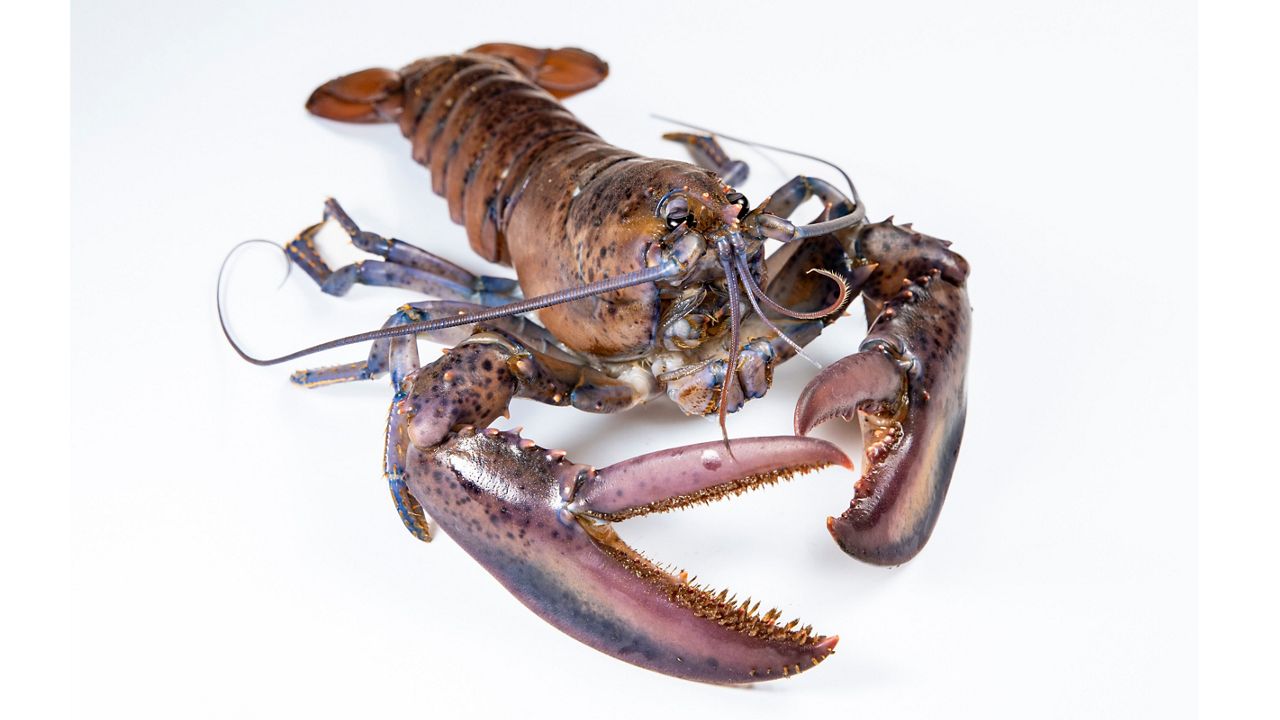Ever wonder why we occasionally see lobsters with odd-colored shells? A new study at the University of New England is looking to answer that question.
The study, announced today, will involve what researchers are calling a “non-invasive” method of extracting DNA from live lobsters bearing the odd colors. Typically, live lobsters have brown shells, officially described as “mottled” in color.
Occasionally, however, some lobsters are discovered with shells bearing other colors, such as blue, yellow, orange, red or even completely white. They are rare, and usually star in viral videos by local lobster fishermen when found.
While experts have often explained the odd coloring as a genetic mutation, scientists have never actually explored the phenomenon in depth.
“At this point, no one really knows in detail why some lobsters develop these multicolor variations, though we do have some theories,” said Markus Frederich, professor of marine sciences at the university. “We hope to use this gene expression research to study the molecular biology of these creatures in a way that is not harmful to the lobsters.”
Right now, the university intends to work with several donated live lobsters bearing unusual colors such as orange, yellow, calico and multi-colored.
In June, the university acquired “Peaches,” a one-clawed lobster with an orange shell. Most recently, the university received two new donated lobsters: “Currant,” a lobster with a blue and brown shell, and “Fig,” a baby lobster with a purple shell.
Lobsters with such odd colors can be as rare as one in 50 million.
Along with the DNA analysis, researchers are studying the eggs of female lobsters to see if offspring will bear the unusual colors of their mother.
“These rare lobsters appearing more and more on social media, and no one seems to know exactly why they turn these different colors,” Frederich said. “We have access to all these different lobsters, and we have the students who are eager to do the research. We thought, ‘Let’s jump on this.’”









